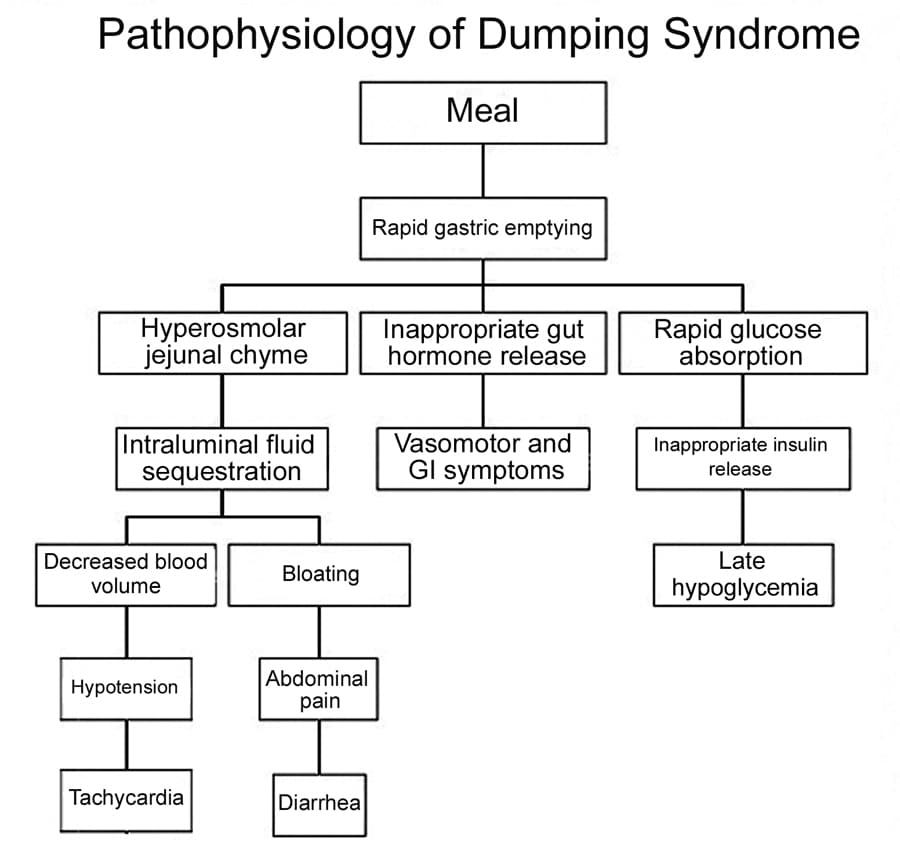The Facts About Dumping
I've read all sorts of things about dumping here and I'm confused. I read that some folks still eat a little sugar after RNY which confuses me because I thought sugar would cause dumping. Is it only brought on by consuming sugar?
I hope someone here will explain what dumping really is and explain the symptoms. What really causes it and how long does it last?
I am only 9 weeks out, but my two experiences with dumping have not come from sugar, but from eating too fast. The first time I drank gatorade too fast (the low calorie kind with little to no sugar in it) I got nauseated, my heart was racing, i had cold sweats and felt like I was going to pass out. This sensation was horrible but passed in about 20 minutes.
The second time was right after I was turned loose on fork tender foods and I ate talapia. It was very tender and I guess I just got over excited about being able to chew food and ate it too fast. I was sick from that for about 6 hours. CRAZY sick!
It is my understanding that sugar can cause dumping as well, so I just choose to avoid it.
Hope this helps a little!
Dumping is an insulin reaction. It refers to the dumping of insulin into the blood stream in response to carbohydrate. In the RNY the section of small intestine removed has most of the body's insulin receptors - their job it to detect the presence of glucose/sugar and trigger the pancreas to secrete insulin. When that structure is removed the small intestine brought up the pouch has to take on a role it wasn't designed for......there are insulin receptors there as well.....but in normal anatomy they would only have fired up if there was a lot of sugar in the food intake....so when they detect glucose/sugar - they send a big message to the pancreas and the insulin is usually an overshot.....it's a much less refined system. All that being said.....only about 1/3 of postops dump. I only dumped two times in three years......and I really pushed the sugar limits.....cake and milk (milk sugars were involved in both of my dumping episodes......I can tolerate higher limits of other sugar forms but something about milk sugars really hits me hard.
Act like you dump even if you don't. Do your best to not test the waters. Any time you eat in such a way to increase insulin in your body you are slowing your weight loss - increasing your appetite and cravings and helping your body store fat. Keeping an even blood sugar is the best way to control hunger and help your body shed body fat. Susan
286/170/131 (starting/goal/current)
LBL - 10-30-08, brachioplasty/augmentation 2-26-09, medial thigh lift 3-16-09
Plastics - Dr. Joseph Fodero

286/170/140/131 (starting weight/goal/surgeons goal/current)
LBL 10-30-08 - Joseph Fodero
Brachioplasty/Breast Augmentation - 2=24-09
286/170/131 (starting/goal/current)
LBL - 10-30-08, brachioplasty/augmentation 2-26-09, medial thigh lift 3-16-09
Plastics - Dr. Joseph Fodero

286/170/140/131 (starting weight/goal/surgeons goal/current)
LBL 10-30-08 - Joseph Fodero
Brachioplasty/Breast Augmentation - 2=24-09
I know that you can slowly over time re-adjust to consuming refined sugars..i'm sure after going through a bunch of "Dumps"....I do know that some folks tolerate natural sugars in small amounts...I for one can drink natural prune juice with no i'll effects, and I am about two and half weeks out from my RNY. Carbs is another thing that will make you "Dump" (eating to many or the wrong kind)...please keep in mind that all of this I have taken from my Surgeon and Dietition..I myself have yet to have a Dump episode (thank god)
The answer to your question is NO everyone doesnt dump but some do and they dump on fat, surgar, sugar alcohol, carbs, etc. Dumping is unique to us all because it doesn't always give everyone the same effect. You may become sleepy, others sweat profusely, some have vomitting or diarrhea. You just never know until you are in the throws of it.
I hope you don't ever get sick again, but if you do just know that the symptoms may manifest in a different manner.
The clinical presentation of dumping syndrome can be divided into GI symptoms and vasomotor symptoms. GI symptoms include early satiety, crampy abdominal pain, nausea, vomiting, and explosive diarrhea. Vasomotor symptoms include diaphoresis, flushing, dizziness, palpitations, and an intense desire to lie down.
The expression of these symptoms varies in different individuals. Most patients with early dumping have both GI and vasomotor symptoms, while patients with late dumping have mostly vasomotor symptoms. Patients with severe dumping often limit their food intake to avoid symptoms. This leads to weight loss and, over time, malnutrition.
- Early dumping systemic symptoms
- Desire to lie down
- Palpitations
- Fatigue
- Faintness
- Syncope
- Diaphoresis
- Headache
- Flushing
- Early dumping abdominal symptoms
- Epigastric fullness
- Diarrhea
- Nausea
- Abdominal cramps
- Borborygmi
- Late dumping
- Perspiration
- Shakiness
- Difficulty to concentrate
- Decreased consciousness
- Hunger










